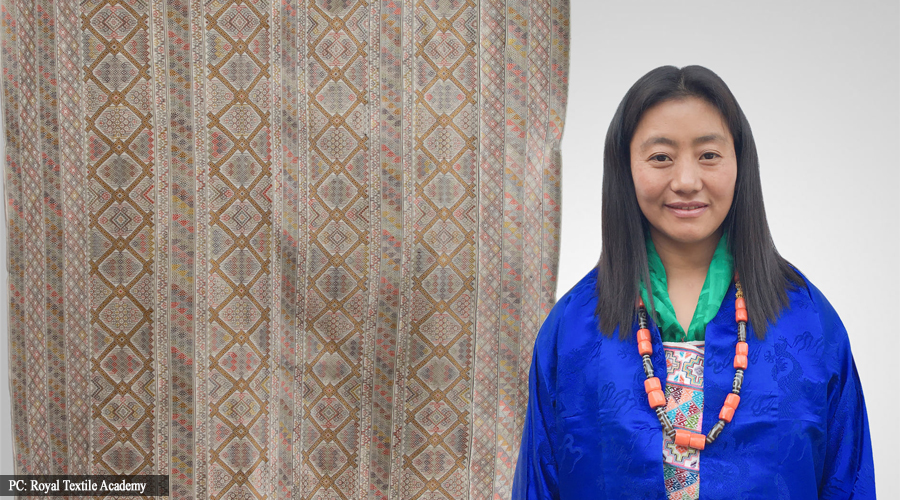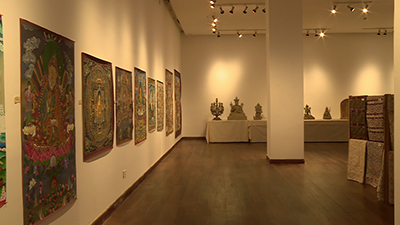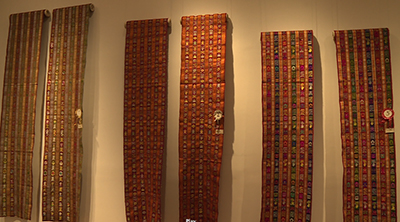
The COVID-19 pandemic has challenged the economic sustainability of the textile sector in the country. With dwindling orders, weavers in rural communities have been the hardest hit. However, the National Design and Art Competition is seen as a platform for remote weavers to showcase their weaving skills and make sustainable livelihoods.
Tshering Yangki won the first prize in the recently held National Design and Art Competition under the Kira category. Her intricately embroidered Kishuthara, a festive attire, earned her recognition for the first time.
Hailing from Khoma Gewog in Lhuentse, a place that is popular for weaving Kishutharas, Tshering Yangki has mastered the skill. The 34-year-old has been weaving the densely patterned kiras since she was 10.
But her income became scarce in the last two years due to the restrictions on social gatherings and festive occasions.
“The pandemic affected our income. Some rich patterned kiras are still not sold. Not many are ordering as it is pointless to wear during non-festive occasions,” she said.
However, receiving validation for creating a woven masterpiece, she is now hopeful of attracting more customers.
She said the relaxations in COVID protocols may perk up the country’s economy and textile sales will pick up again.
To help her and other participants in the competition, the Royal Textile Academy (RTA) and Textile Museum are going to put up a two-week-long exhibition from Thursday in the capital.
 It has jointly organised the National Design and Art Competition with the Textile Museum of the home ministry.
It has jointly organised the National Design and Art Competition with the Textile Museum of the home ministry.
The competition saw almost 160 entries for seven categories including Kira, Gho, embroidery, traditional painting, sculpture wood carving and contemporary art.
 “I am so overwhelmed. This recognition will motivate me to come up with better and unique designs in the future,” said Tashi Zangmo, the winner in the Gho category.
“I am so overwhelmed. This recognition will motivate me to come up with better and unique designs in the future,” said Tashi Zangmo, the winner in the Gho category.
The RTA also initiated a few other measures such as the textile purchase programme to help rural weavers gain economic benefits.
“We have initiated a textile purchase programme, funded by William H Geiger Family Foundation based in the US. Through this programme, we help the rural weaving pockets by directly purchasing textiles and selling them at the Museum shop and we don’t involve the middleman,” said Karma Deki Tshering, a Sr. Curator at the RTA.
The RTA is also in touch with the Thongsa community in Pema Gatshel and a weaving group in Radhi Gewog of Trashigang to facilitate the marketing of their textiles.
Since textiles form an essential part of the country’s cultural heritage, it is of utmost importance that relevant agencies come up with necessary interventions and initiatives to preserve them.
Karma Wangdi
Edited by Pema Lhaden





